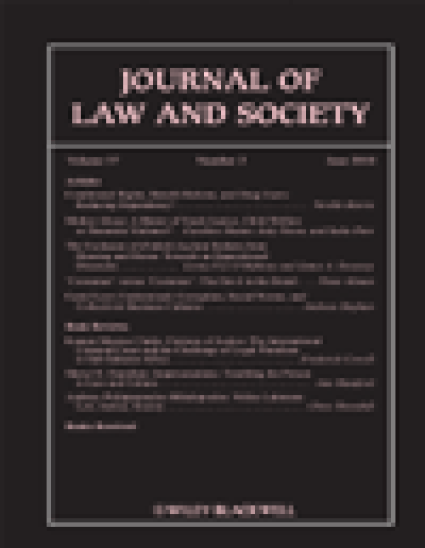
Article
The Scope of Criminal Law and Criminal Sanctions: an Economic View and Policy Implications
Journal of Law and Society
(2008)
Abstract
This paper considers why some harm-generating activities are controlled by criminal law and criminal sanctions while others are subject to some other mechanism such as civil law, administrative law, regulation or the tax system. It looks at the question from the perspective of the law and economics approach. We seek to identify the comparative benefits of using the criminal law relative to other enforcement mechanisms and – more broadly – why certain specific behaviours are criminalized. The paper argues that an economic approach emphasizing the relative merits of alternative legal instruments for bringing about harm reduction can provide an explanation for a number of recent legal developments. It argues also that the willingness of legislators to combine the use of sanctions traditionally used in one area of the law with sanctions from other areas is more readily explicable in economic terms than in other terms.
Keywords
- crime; criminal law; tort law; administrative law; regulation; punitive damages; sanctions; intent; economics
Disciplines
Publication Date
2008
Citation Information
Roger Bowles, Nuno Garoupa and Michael Faure. "The Scope of Criminal Law and Criminal Sanctions: an Economic View and Policy Implications" Journal of Law and Society Vol. 35 Iss. 3 (2008) p. 389 - 416 Available at: http://works.bepress.com/nunogaroupa/18/
